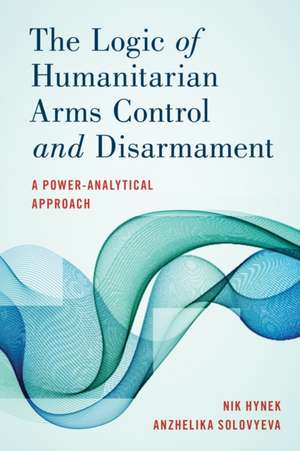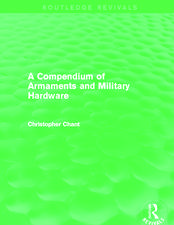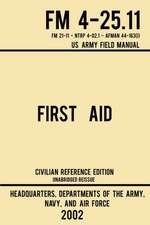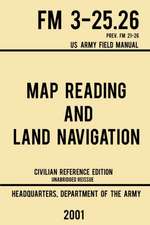The Logic of Humanitarian Arms Control and Disarmament
Autor Nik Hynek, Anzhelika Solovyevaen Limba Engleză Paperback – 10 mai 2022
Preț: 296.38 lei
Nou
56.72€ • 61.59$ • 47.64£
Carte tipărită la comandă
Livrare economică 23 aprilie-07 mai
Specificații
ISBN-10: 1538149877
Pagini: 228
Dimensiuni: 152 x 229 x 14 mm
Greutate: 0.38 kg
Editura: Globe Pequot Publishing Group Inc/Bloomsbury
Notă biografică
Nik Hynek is Professor of Politics at Charles University, Prague. He studied political science and international relations at the Masaryk University, the University of Plymouth, and the University of Bradford where he received his research doctorate degree in Security Studies and International Politics (2011). He was a visiting research scholar at the Columbia University in New York and The London School of Economist and Political Science. Also, he is Associate Editor of the Journal of International Relations and Development (Palgrave Macmillan).
Descriere
This novel and original book examines and disaggregates, theoretically and empirically, operations of power in international security regimes. These regimes, varying in degree from regulatory to prohibitory, are understood as sets of normative discourses, political structures and dependencies (anarchies, hierarchies, and heterarchies), and agencies through which power operates within a given security issue area with a regulatory effect. In International Relations, regime analysis has been dominated by several generations of regime theory/theorization. As this book makes clear, not only has the IR Regime Theory been of limited utility for security domain due to its heavy focus on economic and environmental regimes, but it, too, heuristically suffered from its rigid pegging to general IR Theory. It is not surprising then that the evolution of IR Regime Theory has largely been mirroring the evolution of IR Theory in general: from the neo-realist/neo-liberal institutionalist convergence regime theory; through cognitivism; to constructivist regime theory. The commitment of this book is to remedy this situation by bringing together robust power analysis and international security regimes. It provides the reader with a theoretically and empirically uncompromising and comprehensive analysis of the selected international security regimes, which goes beyond one or another school of IR Regime Theory. In doing so, it completely abandons existing, and piecemeal, analysis of regimes within the intellectual field of IR based on conventional grand/mid-range theorization.

























